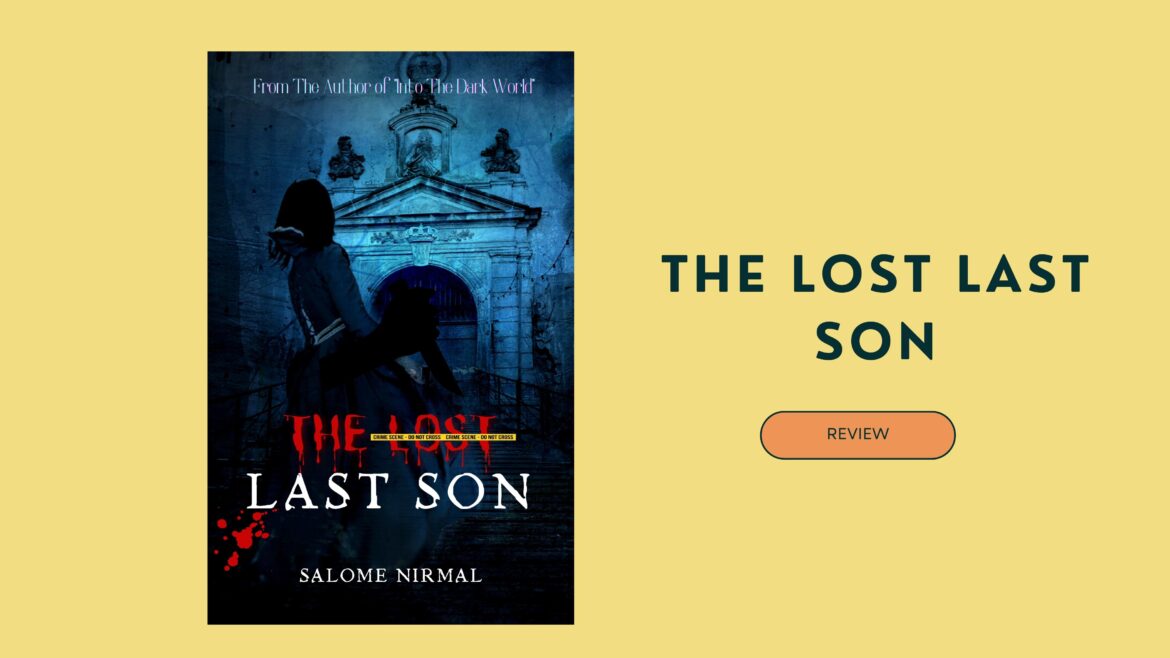As a novel of exploration, a work of literary writing has the potential of gripping the readers thoughts and making them equal investigators in the happenings of the events. In light of this, “The Lost Last Son” by Salome Nirmal takes readers on a riveting journey into the shadows of the human soul, skillfully weaving a tale that transcends the conventional boundaries of a crime thriller. The narrative unfolds through the eyes of Udhay, a mentally traumatized police officer from Mumbai, as he grapples with the complexities of a high-stakes investigation into the disappearance of a young boy from a wealthy family in Chennai. In the midst of the events, the readers find themselves lost in wonder about multiple themes and aspects that the author attempts to unravel through the swiftly developing plot.
From the outset, Salome masterfully immerses readers into the gritty world of crime and the psychological turmoil that accompanies it. Udhay’s character, haunted by his own demons, adds layers of depth to the narrative. His personal struggles create a nuanced backdrop against which the unfolding events take on a heightened sense of urgency and poignancy. “The Lost Last Son” keeps the main subject in focus, but in the background, the author Salome also shows the lives of other characters, their mindset and their ways of seeing the world.
The plot gains momentum as the pressure intensifies on Udhay, both from the desperate family yearning for their son’s return and the relentless media scrutiny amplifying the urgency of the case. Salome adeptly captures the palpable tension and anxiety that permeate the atmosphere, keeping readers on the edge of their seats. What sets “The Lost Last Son” apart is its exploration of the fundamental darkness that resides within every individual. The author delves into the abyss of human nature, skillfully navigating the complexities of morality, guilt, and redemption. As Udhay delves deeper into the investigation, unexpected revelations unfurl, exposing the twisted underbelly of the seemingly idyllic world surrounding the missing boy.
Salome’s narrative skill shines as she paints a vivid picture of the characters, each with their own secrets, motivations, and moral ambiguities. The author intricately explores the dynamics between the characters, presenting a web of connections that keeps readers guessing and questioning the true nature of the darkness that lurks within. At its core, “The Lost Last Son” is a psychological exploration of the human condition. It confronts the reader with the uncomfortable truth that everyone possesses a shadowy side, capable of malevolence and darkness. Yet, it also imparts a message of hope and resilience, suggesting that even the deepest darkness can be overcome.
The thematic richness of the novel lies in its portrayal of the internal struggle each character faces in confronting their own darkness. Udhay’s journey becomes a metaphor for the broader human experience, illustrating the constant battle between one’s darker instincts and the potential for redemption. The author skillfully navigates the psychological landscape, making the characters relatable and their internal conflicts universally resonant. On a metaphorical level, it may also appear to be a journey of self-discovery and an attempt to find the purpose of one’s life.
The prose in “The Lost Last Son” is both evocative and atmospheric. Salome’s descriptive prowess brings the settings to life, whether it’s the bustling streets of Mumbai, the opulent surroundings of Chennai’s elite, or the gritty underbelly where secrets fester. The author’s ability to create a vivid sense of place adds an immersive quality to the narrative, enhancing the overall reading experience. The pacing of the novel is well-calibrated, maintaining a delicate balance between suspenseful moments and introspective interludes. Salome skillfully builds tension, allowing the narrative to ebb and flow, keeping readers engaged from the opening pages to the climactic revelations. The plot twists are expertly executed, challenging preconceived notions and adding layers of complexity to the storyline.
One of the novel’s strengths lies in its thematic depth and the philosophical questions it raises. It invites readers to reflect on the nature of good and evil, the duality within each person, and the potential for transformation. The narrative is not just a crime thriller; it is a contemplative journey into the human psyche, prompting readers to question their own capacity for darkness and the choices that lead to redemption or downfall. In true sense, “The Lost Last Son” is a thought-provoking and emotionally charged exploration of the human condition. Salome Salome’s narrative prowess, coupled with the compelling characters and rich thematic tapestry, makes this novel a standout in the realm of crime fiction. As readers accompany Udhay on his quest for truth, they are not merely solving a mystery; they are peeling back the layers of their own souls, confronting the shadows that dwell within, and contemplating the profound possibility of overcoming the darkness that threatens to consume us all.



